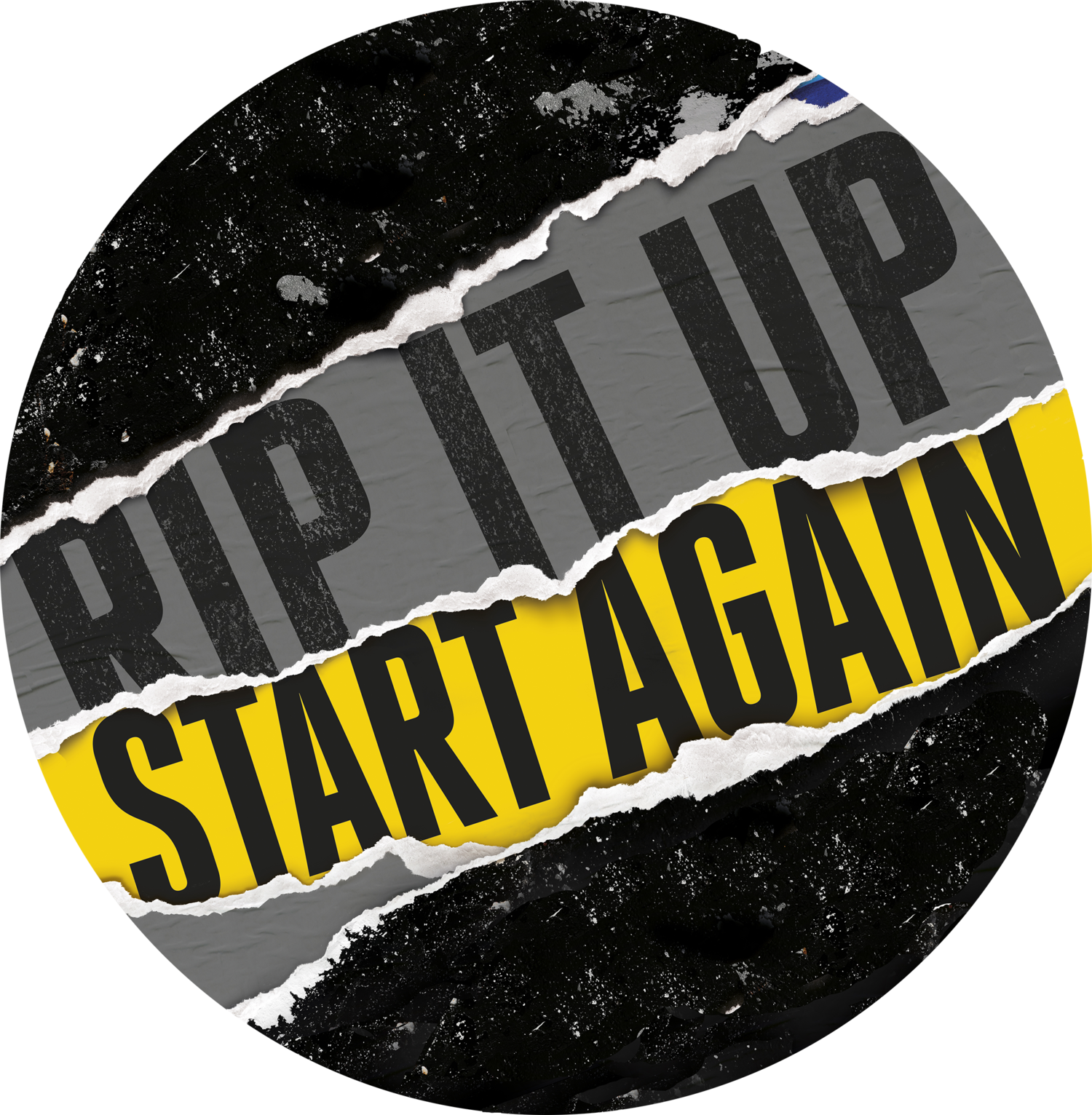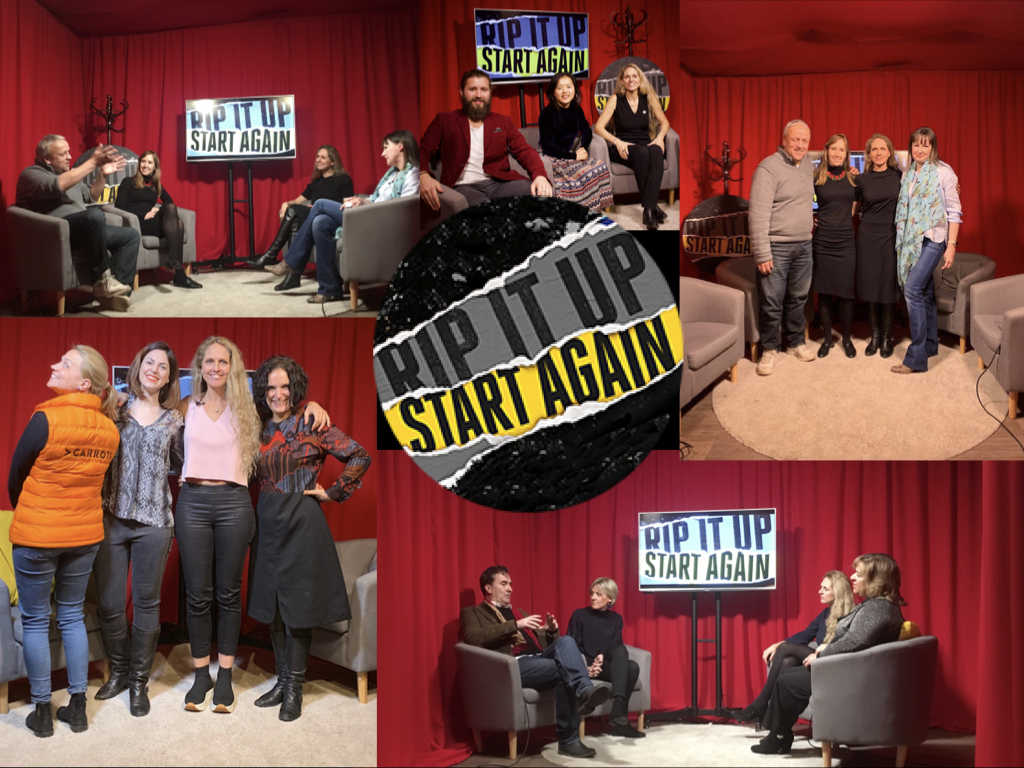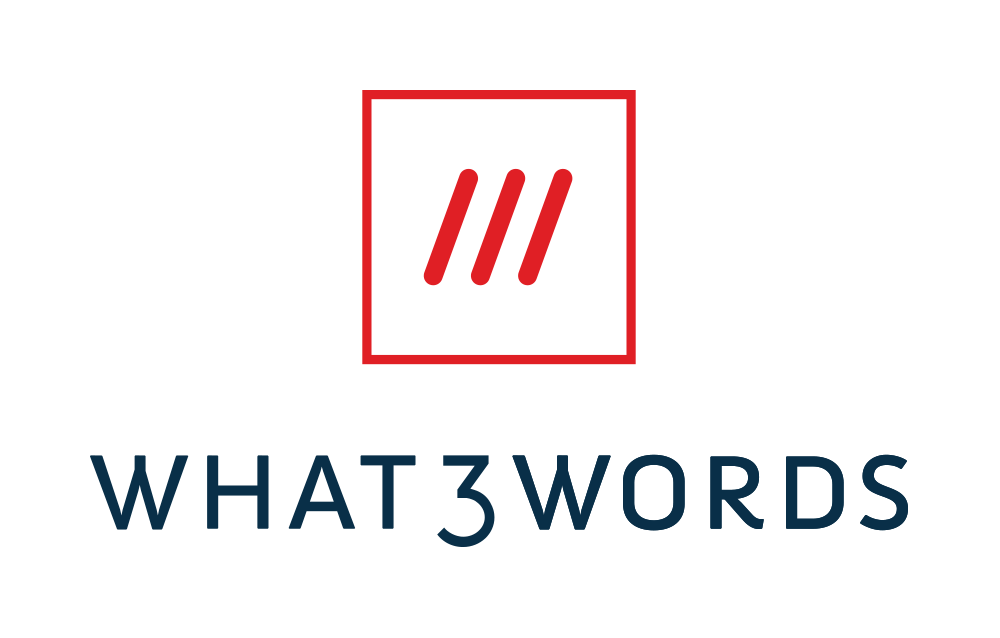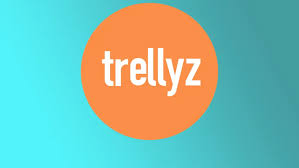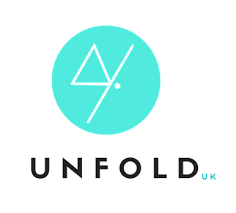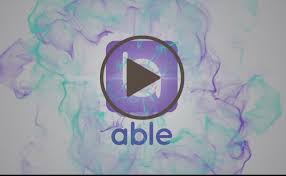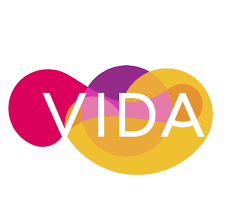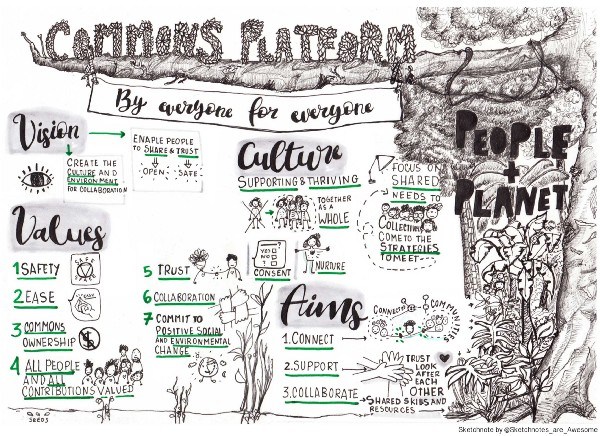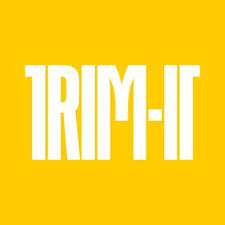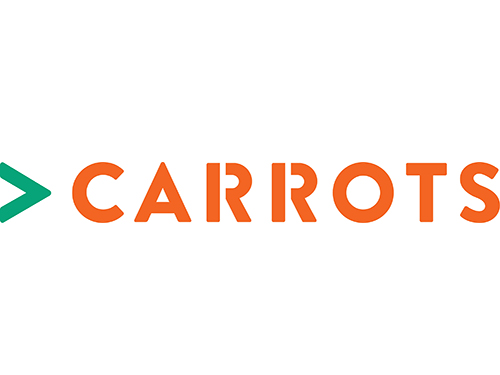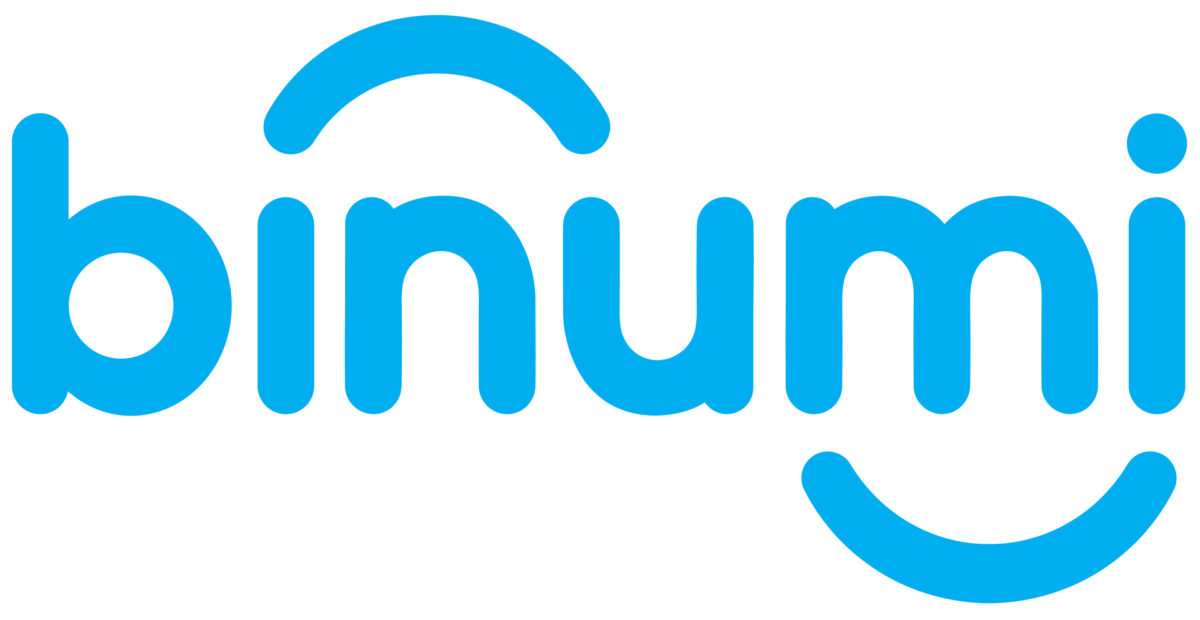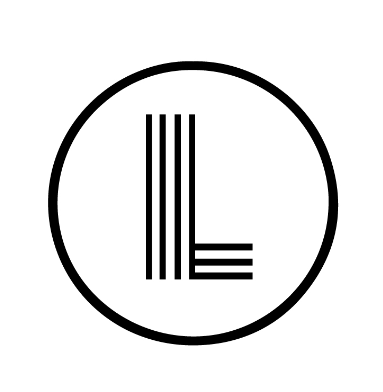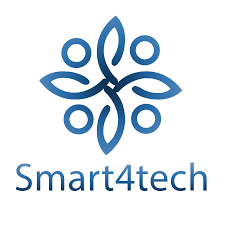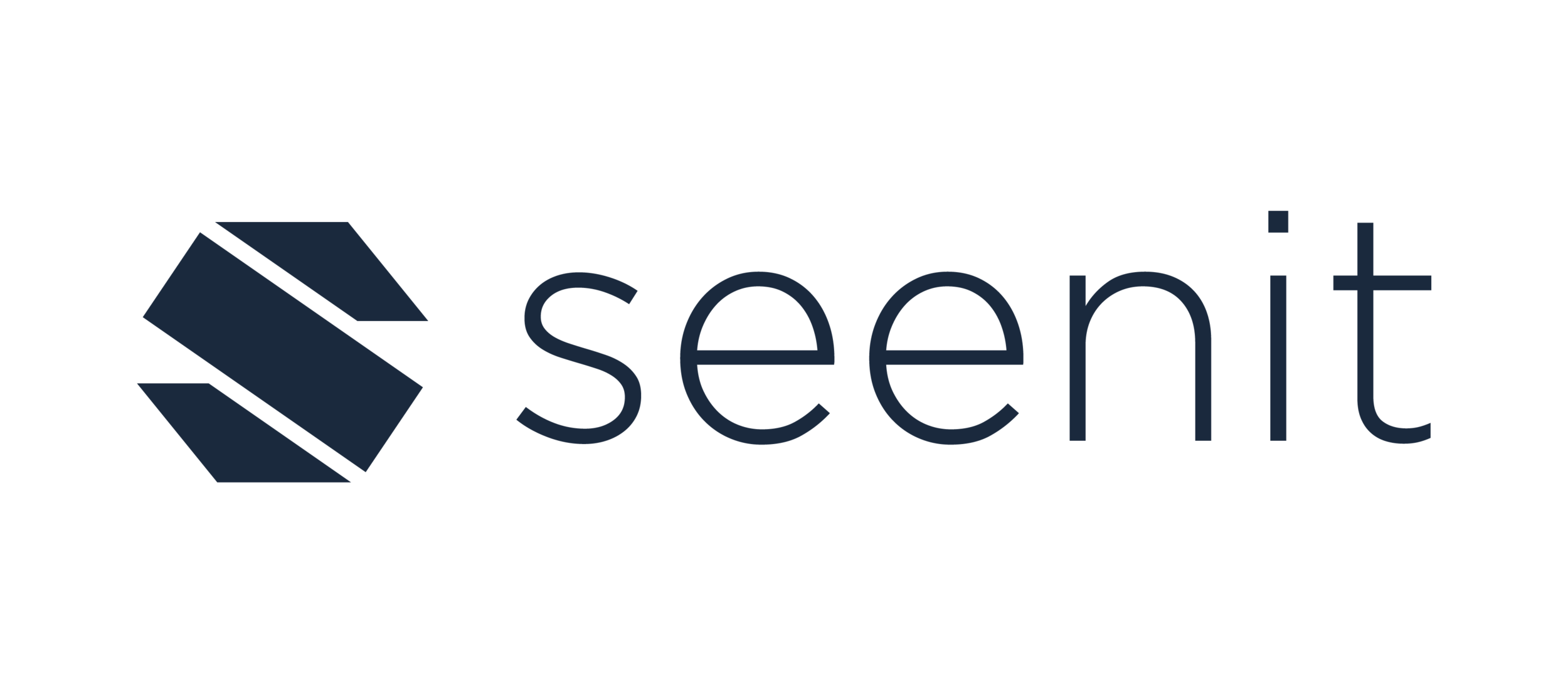Round 2: Veero | Unfold UK | Trellyz
/Rip It Up have partnered with Disruptive.live to bring you live pitches from some of the most exciting startups right now. Hosted by Lulu Laidlaw-Smith, this televised event includes a series of five-minute overview and backstory from entrepreneurs followed by an interactive Q&A. At the end of the episode, users get to vote for which startup they would invest in. This crowdsourcing approach gives a unique insight into what consumers want – and which startups could be the next unicorn. Winners are announced every quarter!
PITCH #1
Barry Whyte | Veero
Barry is on a mission to create virtual reality cinema pop-ups across London. Since the launch of the Steven Spielberg film Ready Player One virtual reality has entered the mainstream. The film depicts a dystopian future where civilisation falls apart and people spend their time in a virtual reality world called The Oasis. This shift from VR being a geeky interest to potentially being a widespread experience raises some interesting questions. Barry recalls VR promotions that showed a whole family sitting in the living room wearing VR headsets and laughing together as they watch TV. How many families really look like that? Nobody wants to sit at home with headsets on because it’s not a social experience. However, that doesn’t mean that there isn’t a demand for VR. Barry’s solution is to create cinema experiences where everyone in the audience wears a headset that helps them engage with the narrative and become part of the story. Although this is not the same as a video game, viewers can still look in multiple directions as an active participant. This new concept could develop into another golden era for big screen cinema, as families plan social evenings to engage in a unique shared experience. Film festivals such as SXSW and Festival de Cannes already have virtual reality categories, proving that VR is being taken seriously as a medium. Launching dedicated cinemas across the UK will give a new generation of filmmakers a commercial platform to showcase their work. Want to give it a go? Visit veero.co to see upcoming events or follow @veero_vr on social.
PITCH #2
Luciana Carvalho Se | Unfold Inclusion
Luciana is moving beyond home entertainment with her start-up, Unfold. Instead of looking at VR as only a medium, what if we explore new and beneficial ways to augment our reality? Luciana’s background is in law and business, followed by six years working for start-ups. A few years ago, she worked for a start-up that introduced children with learning difficulties to a VR experience that engages them through spatial and visual learning. They found that dyslexic children showed a significant improvement in retaining information. The turning point was when Luciana met a nine-year-old child who believed she was stupid and couldn’t do well in school. Within an hour of interacting in a gamified platform, she was able to overcome her difficulties with reading text and that led to a massive confidence boost at school. This was the moment that Luciana decided to use VR for good. Since then, she has been applying VR to training and education with a focus on enhanced learning. After working with the immersive virtual reality agency, Rewind, she turned her attention towards diversity issues, particularly gender inequality. The uptake of someone going through a VR experience is that we can affect moods and behavioural change because the brain perceives the experience as a real memory. Many people don’t know this, but VR has been used in therapy for the last 30 years. Now think about the current big issues we face around unconscious bias and diversity. Imagine being able to build an industry from the ground up that can power underrepresented voices – not only women, but all underrepresented voices. Find out more about at unfolduk.org and keep up with Luciana @lcarvalhose.
PITCH #3
Shelley Taylor | Trellyz
Shelley is one of the early pioneers of user experience and has been part of tech start-up culture for more than 20 years. She describes the random path from growing up in Palo Alto California (the epicentre of Silicon Valley) to launching the LifeSpots app for government and nonprofits, which shares information and services with people who need them the most. The moment of realisation came when a photograph was published of a dead Syrian child washed up on a beach in September 2015. At the time, Shelley was building mobile apps for communities to interact with personal brands such as musicians and celebrities. Turning her attention towards the refugee crisis, she began to explore how technology can help refugees arriving in new countries to find shelter and food along with medical, legal and other services. The starting point was to ask nonprofits if it would be useful to have locations marked on an app using GPRS locations. Their enthusiasm was unanimous. The LifeSpots app is now in 22 countries, and there are 5000 organisations using the platform. The app has reduced inefficiency and paperwork by having a greater, more immediate impact. This passion project became the basis of a commercial platform that allows cities to share their public services with residents, whether people are looking for financial advice and help after a job loss or information about elderly care and babysitting services. Over the last year, LifeSpots has been putting information in the palm of people’s hands – where they need it, when they need it. To find out more about LifeSpots for government and Lifespots for nonprofits, visit trellyz.com.
Q&A HIGHLIGHTS
On problems solved...
Luciana Carvalho Se: "We are not going deep enough into the subject of unconscious bias and the way that is has been tackled. This is something that is formed around 5-7 years of age and there are so many different layers that it becomes impossible for you to dictate what one influence was – whether it’s teachers, parents, colleagues, media, culture. It depends on nationalities and your upbringing. In order to change such ingrained patterns of thinking, something like VR, which immerses you in what is the closest to being in the shoes of another, can have a greater impact – more than we’ve seen before. I’d love to be able to get people to understand their deepest biases. I have biases. If you have a brain, you have biases.”
Barry Whyte: "We have yet to work out how VR as a technology can best be implemented and used. A lot of effort has been put into selling VR headsets for home, but people aren’t really going to sit at home and put on a VR headset and engage in a training programme. I think incorporating VR into existing training programs on subjects such as unconscious bias suddenly brings it to life in a way that they’re just not brought to life if you’re just reading from a textbook. It also goes beyond unconscious bias. Think about general leadership training. If you have got to give a presentation, actually standing in front of an audience in a conference hall and knowing what that feels like months in advance of giving that talk is really powerful. That can give people confidence in a way that traditional training can’t do.”
Shelley Taylor: "There’s a huge amount of money being spent by non-profits, yet most of us wouldn’t have a clue who to go to if we actually needed help, like if some terrible thing happened to us. We probably would not know that there is a service nearby. We have so many problems in society. In the US, the nonprofit services spend 1.7 trillion USD per year on delivering services. It’s a massive market. Nonprofit services, if they were a country, would be the fifth largest in the world in terms of revenue. 10% of Americans work for nonprofits. It’s such a huge thing, but it’s an industry that has primarily been using paper and old-world tools to solve more and more problems.”
On trust...
Shelley Taylor: "The most important thing is education. People trusted without good reason the GAFA companies – Google, Amazon, Facebook and Apple – giving away all of their personal information which has been used to create presidents that were not voted for and all kinds of horrible things. I think the first step is to get people to understand what it is that they actually own, like their personal data. What we do is collect as little information as possible because we don’t want to be hacked. So, we don’t want to hold a lot of data that can be used against people.”
Luciana Carvalho Se: "It’s interesting to see how people react to VR and emerging technology. On the one hand, there’s the issue of consumer behaviour with putting a headset on and getting rid of your surroundings. That’s massive. The other thing is, Oculus, which is the most widely gifted headset out there, is owned by Facebook. What does that mean? No longer will you have information that is collected, but actual data eye gazing and potentially even biometric data.”
On validation...
Shelley Taylor: "As a tech start-up, I have a basic pattern that I follow every time. I look at the competitive landscape and all of the players who are either directly competing or nearby and kind of related. Then I figure out what they all have in common and where there are some missing pieces. I then make sure that we include all of the things that are standard that people would expect, but also focus on the sweet spots to make it easy to differentiate. The next step is to build the tech relatively inexpensively because nowadays you can’t get any funding if you don’t have a real thing. That means you either have to build it yourself or have some of your own money to hire developers. Then you just get it out there. There’s no such thing at betas anymore.”
Luciana Carvalho Se: "It’s about not hesitating or waiting to validate every single point and know how you’re going to go about it. To be a disruptor or someone that is actually taking the plunge, if you fail then you must have that resilience to get back up. You’re going to go out there and you might get screwed over and you might fail, but learn where there are weak points and go out and get feedback. Listen to whoever you are building it for. I think the world is moving to a point in which we’re more led by purpose and your mission and your values more than anything else.”
Shelley Taylor: "Everyone wants to be like the Facebooks, but companies like Facebook might not be around much longer than the next five years. I think the mistake they have made is not having a mission that resonated with good, so there’s an opportunity to overcome the past way of doing things.”
Barry Whyte: "Ideas will change. They will evolve and grow, so never be precious about them. Secondly, ideas are lovely, but they are useless unless you have execution. To bring those two things together, it’s about getting an idea to market quickly and standing back and observing what path it takes. Then, being flexible and confident enough that you don’t care if it changes or evolves in a slightly different direction. Getting a product to market first and being led by your customers is central to getting that idea out there. I didn’t have a single business that was successful where the final product remotely resembled the initial idea.”
On scaling up...
Shelley Taylor: "I’m what I would call an extreme bootstrapper. I’m not the right fit for most VCs; I don’t look the way they do, I’m not the right gender, not the right age, so it’s not that easy raising money. Ten years ago, it was much easier. It’s really about bootstrapping, but you have to think about scale because no business is ever going to succeed if you’re not big enough. Now we’re in 22 countries and people say that’s ridiculous, how can such a small company be in so many places. We just do it because you have to do it. It doesn’t work anymore just to scale in one tiny little country.”
Luciana Carvalho Se: "It’s about collaboration and partnership. For example, with diversity in VR and women in tech, there are countless organisations out there and networks and meetups that are all looking at the same thing. I never set out to reinvent the wheel or create an unconscious bias programme off the ground. It’s looking at what’s out there, where they are and how they can fit in. I’ve never underestimated the power of asking for help where needed and connecting with potential mentors – I hope everyone in the audience knows that they can reach out to us.”
On change...
Barry Whyte: "When we set out last year, our idea was to open a physical virtual reality cinema in London. It became apparent very quickly that there just wasn’t enough content out there that was really good and commercial. There’s lots of great VR content, but not that much you would want to pay money to see. So, that’s the area of change that has affected my business plan the most over the course of the last month. It’s having a think about what sort of content can I invest in to make commercial gains. That’s a completely different place to where I started, although the general territory is pretty much the same.”
Shelley Taylor: "In order to launch a business that maps every single public and community service provider, we had to make it free so that every single one of them could list their services. How am I going to pay for that? Then, I thought about those city bikes that all the corporate brands are on. What if in every single city we used sponsors to launch our public-facing app, and they get the benefit of being seen to do something good for the community? That pays for us to do marketing, which leads to people downloading the app, and that inspires the non-profit service providers to put their services in because they have a captive audience. It was such a random thing, but also such a huge change.”
Luciana Carvalho Se: "The letting go of those initial ideas is difficult, but you know where you want to go. You just need to pivot accordingly and react to the times. Timing is huge. For example, women in VR and diversity and inclusion has gained such momentum with #metoo. Suddenly we’ve seen a shift.”
